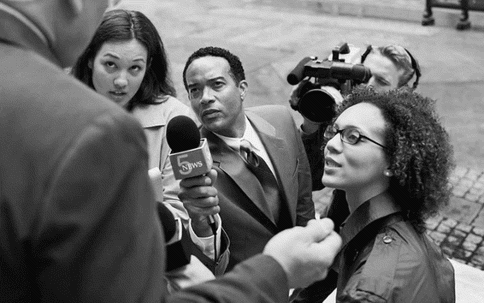I. Introduction: Truthfulness in the American Legal Environment
There is no better way of exercising the imagination than the study of law. No poet ever interpreted nature as freely as a lawyer interprets the truth.
- Jean Giraudoux
Wisconsin’s unique and potentially problematic evidence rule is known colloquially as the “Counting Rule.” The rule was developed with a seemingly simple purpose of determining the boundaries of admissibility of certain types of evidence to impeach the credibility of trial witnesses. However, in practice it has resulted in a system that makes liars of court officers and witnesses while failing to assist the jury in a meaningful way.
II. Impeachment by Prior Conviction: Uses, Application, and Variances
Truthfulness is a character trait that is universally recognized by courts throughout the many jurisdictions within the United States.
Courts, commentators, and legislatures have neither defined the concept of "character" with any precision nor furnished a list of recognized traits. The law of evidence uses "character" to broadly refer to a person's disposition or generalized propensity to behave in a certain manner…Regardless of what the mind sciences have revealed, the law assumes that human beings possess character traits. Moreover, there is an unverified assumption that people act, at least sometimes, in accordance with these character traits.
In our system, questions of fact are for the jury to decide and questions of law are for the judge. The determination of a witness’s credibility is clearly situated within the province of the jury. What weight to give to a witness’s testimony, if any, is solely a determination for the fact finder, generally a jury, except in the case of a bench trial.
An opponent of a witness at trial may seek to challenge the credibility of a witness in a variety of ways including their testimonial capacity (memory, recollection, communicative ability, etc.) or their character for truthfulness itself. While impeachment by use of a witness’s prior criminal record is not the only means of impeaching a witness’s character for truthfulness in this state, or in any other state, impeachment by use of a witness’s prior criminal conviction(s) is allowed in some circumstances in every American jurisdiction. “Although this form of impeachment exists in all jurisdictions, Wisconsin’s approach is so unique that Wigmore dubbed it a ‘queer rule.’”
This blog considers two other approaches that jurisdictions have taken in determining the use of a witness’s prior criminal convictions for impeachment purposes. a) The Federal Approach; b) The Massachusetts Approach.
a. The Federal Approach to Impeachment by Prior Conviction

Rule 609. Impeachment by Evidence of a Criminal Conviction
(a) In General. The following rules apply to attacking a witness’s character for truthfulness by evidence of a criminal conviction:
(1) for a crime that, in the convicting jurisdiction, was punishable by death or by imprisonment for more than one year, the evidence:
(A) must be admitted, subject to Rule 403, in a civil case or in a criminal case in which the witness is not a defendant; and
(B) must be admitted in a criminal case in which the witness is a defendant, if the probative value of the evidence outweighs its prejudicial effect to that defendant; and
(2) for any crime regardless of the punishment, the evidence must be admitted if the court can readily determine that establishing the elements of the crime required proving — or the witness’s admitting — a dishonest act or false statement.
(b) Limit on Using the Evidence After 10 Years. This subdivision (b) applies if more than 10 years have passed since the witness’s conviction or release from confinement for it, whichever is later. Evidence of the conviction is admissible only if:
(1) its probative value, supported by specific facts and circumstances, substantially outweighs its prejudicial effect; and
(2) the proponent gives an adverse party reasonable written notice of the intent to use it so that the party has a fair opportunity to contest its use.
The Federal Rules of Evidence allow for the broad admission of evidence of prior convictions. The rule states that evidence “shall” be admitted in most instances unless the “probative value is substantially outweighed by a danger of one or more of the following: unfair prejudice, confusing the issues, misleading the jury, undue delay, wasting time, or needlessly presenting cumulative evidence.” The impeachment rule potentially allows for admission of the underlying conduct leading to conviction, findings of fact made by prior tribunals, sentences imposed, dates of conviction and offenses, and other evidence deemed relevant, so long as it does not run afoul of FRE § 403.
The potential penalty for the offense must have been at least one year incarceration or must have included an element of dishonesty. The statute itself does not impose limits on the amount of time a particular offense is deemed relevant and so federal judges are given wide latitude to admit evidence of criminal convictions.
This rule can be contrasted with the approach taken by Massachusetts, for instance.
b. The Massachusetts Rule for Impeachment by Prior Conviction
The Massachusetts rule for impeachment by prior conviction shares the federal rules number (“609”) but differs from the Federal rule in substantial ways.
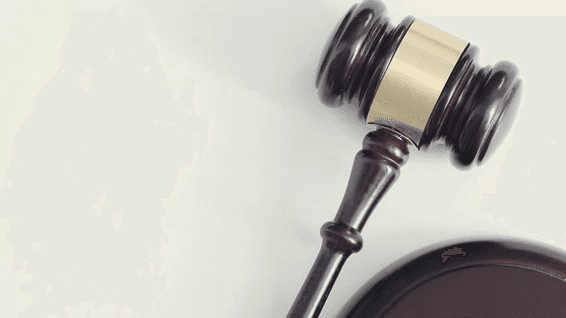
Section 609. Impeachment by Evidence of Conviction of Crime
(a) Generally. A party may seek to impeach the credibility of a witness by means of the court record of the witness’s conviction or a certified copy, but may not make reference to the sentence that was imposed, subject to Section 403 and the following requirements:
(1) Misdemeanor. A misdemeanor conviction cannot be used after five years from the date on which sentence was imposed, unless the witness has subsequently been convicted of a crime within five years of the time he or she testifies.
(2) Felony Conviction Not Resulting in Committed State Prison Sentence. A felony conviction where no sentence was imposed, a sen¬tence was imposed and suspended, a fine was imposed, or a sentence to a jail or house of correction was imposed cannot be used after ten years from the date of conviction (where no sentence was imposed) or from the date of sentencing, unless the witness has subsequently been convicted of a crime within ten years of the time he or she testifies. For the purpose of this paragraph, a plea of guilty or a finding or verdict of guilty shall constitute a conviction within the meaning of this section.
(3) Felony with State Prison Sentence Imposed. A felony conviction where a sentence to a State prison was imposed cannot be used after ten years from the date of expiration of the minimum term of imprisonment, unless the witness has subsequently been convicted of a crime within ten years of the time he or she testifies.
(4) Traffic Violation. A traffic violation conviction where only a fine was imposed cannot be used unless the witness has been convicted of another crime or crimes within five years of the time he or she testifies.
(5) Juvenile Adjudications of Delinquency or Youthful Offender. Adjudications of delinquency or youthful offender may be used in subsequent delinquency or criminal proceedings in the same manner and to the same extent as prior criminal convictions.
The Massachusetts’ rule shares the federal provision barring evidence that tends to create an undo prejudice, confusion of the jury, etc. However, it imposes limitations on what types of evidence can actually come in. It specifically bars the admission of the sentence itself and information that is not available on the certified judgment of conviction. Under operation of the rule, Massachusetts’ jurors are informed of the nature of each conviction and the date of conviction, but not the underlying facts or circumstances.
Further, the statute gives guidance to judges in determining how long after a conviction a particular conviction is deemed relevant or admissible. Unlike the federal rule, there is no specific provision for violations that include an element of dishonesty. Instead, the sentence that any conviction carried is the main criteria for determining admissibility.
Both of these rules are different in form and operation than the Wisconsin rule.
c. The Wisconsin "Counting Rule" for Impeachment by Prior Conviction

Wis. Stat. § 906.09. Impeachment by evidence of conviction of crime or adjudication of delinquency.
(1) General rule. For the purpose of attacking the credibility of a witness, evidence that the witness has been convicted of a crime or adjudicated delinquent is admissible. The party cross-examining the witness is not concluded by the witness's answer.
(2) Exclusion. Evidence of a conviction of a crime or an adjudication of delinquency may be excluded if its probative value is substantially outweighed by the danger of unfair prejudice.
(3) Admissibility of conviction or adjudication. No question inquiring with respect to a conviction of a crime or an adjudication of delinquency, nor introduction of evidence with respect thereto, shall be permitted until the judge determines pursuant to s. 901.04 whether the evidence should be excluded.
On its face the Wisconsin Rule seems to be extremely broad. The statutory rule says that “evidence” of prior criminal convictions is admissible so long as it doesn’t result in undue prejudice and so long as it has been subjected to a prior ruling by the presiding judge.
The Wisconsin Supreme Court is responsible for creating the rules of evidence and has the authority to change the rules themselves as written. However, in the case of Wis. Stat. § 906.09, the Wisconsin Supreme Court has chosen to modify the rule substantially by way of case law rather than by rewriting the statutory rule itself.
Wisconsin law is very clear that if evidence of prior convictions is admitted, witnesses may be asked if they have been convicted of a crime, and if the answer is yes, the number of convictions. The nature of the convictions is not to be discussed by the proffering party.
This rule is what has come to be known as Wisconsin’s “Counting Rule.” The factual background of a particular prior conviction, the nature of the offense, the dates of conviction, and the sentence imposed are all inadmissible. Specifically, the probative value of this information is considered to be outweighed by the potential prejudice. Essentially, the relevance of convictions rests solely on how many convictions “count.”
If this were the only facet of this rule there would scarcely be room to analyze its relation to truth and falsehood in practice beyond the question of how helpful it is to fact-finders in determining witness credibility. However, the relevance of each individual conviction must also be ruled on by the court, in a fashion similar to the rules that govern the admission of prior conviction evidence in Massachusetts.
As indicated by Wis. Stat. § 906.09(3), before any witness may be asked about his or her prior criminal convictions, the presiding judge must make a ruling as to the relevance of the evidence sought. This analysis must be conducted as to each individual charge that is to be “counted.”
“When deciding whether to admit evidence of prior convictions for impeachment purposes a trial court should “consider whether from the lapse of time since the conviction, the rehabilitation or pardon of the person convicted, the gravity of the crime, the involvement of dishonesty or false statement in the crime ..., the probative value of the evidence of the crime is substantially outweighed by the danger of undue prejudice.”
It is this step that fundamentally impairs the ability of lawyers and witnesses to act in accordance with the truth. Where a judge determines that some prior charges are relevant while others are not, the court creates a legal fiction for the purposes of trial.
It is the customary role of courts to limit the scope of information available to a jury. However, in this instance the creation of this legal fiction often includes a court order to attorneys requiring that they instruct their witnesses to make false statements to the jury. The attorneys are further instructed to knowingly solicit false testimony from witnesses in the presence of the jury in proceedings whose purpose is to search for truth. And the alleged purpose of this exercise is to aid the jury in determining the lying witness’s character for truthfulness. The contradictions between the idyllic nature of legal practice, the oaths of attorneys and witnesses, the purpose of trials as exercises in truth-seeking, and the public perception of attorneys as dishonest and amoral, seemingly abound. Instructing witnesses is materially different than a simple instruction to limit the scope of testimony and has materially different consequences.
III. Making Liars Out of Everyone
Wisconsin’s Counting Rule, because it requires advanced judicial rulings on witness impeachment, leads to a lot of pre-trial litigation. The system encourages attorneys to make arguments that are often inconsistent. Litigators seek to maximize the importance of opposing counsels’ witnesses’ prior records while minimizing past criminal activity of their own. These arguments may be inconsistent with their traditional rolls, as when criminal defense attorneys seek to admit prior bad acts of opposition witnesses. Generally, a defense attorney is making arguments about prior convictions at sentencing and seeking to persuade the judge to discount them, rather than the alternative the Counting Rule requires.
Through the process, a difficult duty is imposed on judges in determining relevance of prior cases. When a Judge determines partial admission of prior records is relevant, he or she generally orders attorneys to instruct their witness to represent a false truth to the jury. This process may often result in witnesses and attorneys facilitating willful misstatements to the jury, making liars out of all. The next section of this paper explores how this occurs in general practice.
a. Pretrial Practice and the Counting Rule.
In Wisconsin pretrial practice, upon discovery request, parties must furnish each other with witness lists. These witness lists must include all witnesses the parties intend to call. Rebuttal witnesses or those called only for impeachment do not have to appear on this list. In criminal cases, prosecutors have an affirmative duty, upon request, to provide the criminal records of any witness it intends to call at trial. This language is standard in criminal discovery requests and often results in a lot of paper being generated that often doesn’t state much. Prosecutors have a variety of services that they can use to discover prior criminal records and often will submit the results of these services to the defense even if they demonstrate no criminal record. For every State’s witness then, there may be a many page packet establishing only that no prior criminal record exists.
If a witness has a criminal record, and if the opposing party believes that it will be found relevant, that party will file a motion with the court arguing for admission of some or all of the convictions indicated. The party whose witness’ credibility is challenged will then likely file a brief opposing the motion and the admission of some or all of the prior criminal record.
Once a motion and response are filed, the issue of admissibility of a prior criminal record will usually be set for a hearing and oral arguments. This hearing may be set well before trial, but often will occur on the same date.
The credibility of attorneys involved in this process may suffer at this point, particularly if the attorneys are primarily criminal attorneys who work in the same courts, before the same judges, on a regular basis. For instance, a criminal defense attorney may routinely argue in front of the same judge that his or her client’s past record should not be given strong consideration at sentencing while a prosecutor may routinely argue just the opposite. While judges no doubt understand that these attorneys are doing their jobs, there is value in being a consistent proponent of one view that adds credibility to an argument. However, the same defense attorney may forcefully argue in a pretrial Counting Rule hearing that a witness’s prior criminal record is highly indicative of bad character and must go to the jury. The gain from increasing the conviction count might be a nearly negligible value in comparison to an attorney’s lost credibility if it impairs his or her ability in subsequent representations. However, Wisconsin principles of ethical conduct seem to bar such a consideration.
The preamble to the Wisconsin rules of Professional conduct states that “These principles include the lawyer's obligation zealously to protect and pursue a client's legitimate interests, within the bounds of the law, while maintaining a professional, courteous and civil attitude toward all persons involved in the legal system.” Therefore, an attorney must represent the client he or she has now, and should not consider the marginal effect a zealous representation of an existing client may have on his or her persuasive standing in the future.
So, in his or duty to his client, whether it be a defendant or the State itself, an attorney’s ethics dictate that he or she seek admission or suppression of various criminal convictions for various witnesses.
The Wisconsin Supreme Court has prescribed a set of four factors a reviewing court should consider as to each charge.
A trial court considering whether to admit evidence of prior convictions for impeachment purposes should consider the following factors: (1) the lapse of time since the conviction; (2) the rehabilitation or pardon of the person convicted; (3) the gravity of the crime; and (4) the involvement of dishonesty or false statement in the crime.
Oral arguments, along with the briefs, will seek to persuade the judge as to each of these four elements. Unlike the Massachusetts evidence rule cited earlier, there is no per se point where a felony or misdemeanor conviction becomes too stale in all circumstances. The factor test does incorporate whether a prior offense had an element of “dishonesty or false statement in the crime,” similar to that of the Federal Rule of evidence. There is no proscribed level of weight for any element against the others, and so a past criminal conviction may be admitted or suppressed on the basis of one factor even if the other factors all weigh in the other direction.
In all decisions related to the admissibility of evidence, Wis. Stat. § 904.03 applies. “Although relevant, evidence may be excluded if its probative value is substantially outweighed by the danger of unfair prejudice, confusion of the issues, or misleading the jury, or by considerations of undue delay, waste of time, or needless presentation of cumulative evidence.” So, even if the factors indicate that a prior conviction should come in, a judge may keep it out if the judge feels it would result in unfair prejudice or confuse the jury.
When the judge has determined what the count should be, and if he or she has determined that at least one conviction is relevant to a witness’s prior testimony, he will enter an order dictating what the truth is for the purposes of trial.
The judge will direct the attorney who is calling the witness to instruct the witness to the effect that “If asked if you have ever been convicted of a crime, you should answer ‘yes.’ If asked how many times you should answer x,” with x representing whatever number the judge has determined it should be. This number need not be, and often isn’t, reflective of the actual truth.
It is this order that establishes the most significant problem for Wisconsin’s Counting Rule, because it is this order that often makes liars out of everyone involved. The judge, while not lying himself or herself, has ordered others to engage in dishonest conduct. The attorney, in order to comply with a lawful court order, must abandon his or her ethical duty to be truthful in court. And the witness is placed in the position of violating his or her solemn oath or affirmation to tell the truth, the whole truth, and nothing but the truth.
Appellate review of determinations at Counting Rule hearings are governed by the highly deferential abuse of discretion standard. The harmless error doctrine, however, would generally prevent a reversal of a conviction, in virtually all circumstances, if the sole basis for a reversal is a count that an appellate court disagrees with.
PROFESSIONAL PRACTICE TIP: Attorney's wishing to avoid suborning false testimony under the Counting Rule may consider asking a witness about the Court's order itself. For example, "Before you came up here to testify, you were told if you were asked about your criminal record, you should admit you had one, correct?" "And you were also instructed, if asked, to testify that you have been convicted x times, correct."
While a bit unwieldy, it alleviates some tension caused by the order in this case. The answers to those questions are true.
b. Making Liars Out of Witnesses
The expectation that witnesses are to testify honestly is a well-known and well-established part of our court system. The procedures surrounding the swearing of witnesses in court proceedings is a staple of popular culture works and a component of law that even those of minimal legal knowledge and experience are likely to be familiar with. The requirement that a witness swear or affirm his or her intent to provide complete and honest testimony is codified at Wis. Stat. § 906.03(1-3).
(1) Before testifying, every witness shall be required to declare that the witness will testify truthfully, by oath or affirmation administered in a form calculated to awaken the witness's conscience and impress the witness's mind with the witness's duty to do so. (2) The oath may be administered substantially in the following form: Do you solemnly swear that the testimony you shall give in this matter shall be the truth, the whole truth and nothing but the truth, so help you God. (3) Every person who shall declare that the person has conscientious scruples against taking the oath, or swearing in the usual form, shall make a solemn declaration or affirmation, which may be in the following form: Do you solemnly, sincerely and truly declare and affirm that the testimony you shall give in this matter shall be the truth, the whole truth and nothing but the truth; and this you do under the pains and penalties of perjury.
It should be noted that this provision is so important that even the swearing must be done honestly, so that if a person does not have a belief in a God, he or she should make the court aware of that, and choose to affirm his or her intention to give honest testimony rather than swear an oath with the words “so help you God.” It would be dishonest to manifest a false belief.
However, under the Counting Rule, where a judge has determined that a witness should testify to a number of convictions other than that which is accurate, the witness is placed in the precarious position of swearing or affirming his or her intent to tell the truth while he or she actually has an intent to lie. Then, the witness must act in accordance with the Court’s order and willfully lie to the jury. The alleged purpose of this lie is to aid the jury in determining the credibility of a witness. The Counting Rule has a striking irony to it.
What remedy is imposed if the witness gives a number other than that which has already be deemed to be the “relevant” number? Essentially, the witness is further impeached. The Wisconsin Court of Appeals dealt with just such a situation in State v. Pitsch,124 Wis.2d 628 (Wis. App. 1985). In Pitch:
On direct examination defense counsel asked the defendant on “how many occasions he had been convicted of a crime.” Defense counsel apparently followed the usual trial strategy of raising the issue of defendant's prior convictions on the premise that this approach is less damaging than if the prosecutor raises the issue first. The defendant responded “two.” On cross-examination, the prosecutor established that the defendant had been convicted on at least three separate occasions of nine offenses. Because the defendant had misrepresented the number of his prior convictions, the prosecutor was also able to put the nature of these offenses before the jury. The state was thus able to place before the jury evidence that the defendant had been convicted once of attempted theft, twice of theft, once of entry into a locked vehicle with intent to steal, once of criminal damage to property, and four times of burglary.
In upholding this judicial application, the State Appellate Court permitted the inclusion of evidence that would otherwise be excluded by statute and be unduly prejudicial to correct the error of the witness. The Pitch exception has allowed shrewd attorneys who have a witness testify inaccurately to take that witness step-by-step through every prior conviction in an attempt to allegedly correct the count.
Imagine the possibility then, of an honest witness being impeached with additional, otherwise inadmissible evidence, because he or she gave the actual number, rather than testifying falsely.
An additional problem with the application of this rule is that witnesses do not testify in a vacuum. Witnesses go home when their testimony is over and they talk to their friends and families about the time when they were ordered to lie under oath. They may sit on juries at some point, or the friends and family members they confide in may sit on juries or act as witnesses themselves. The Pitch exception can reveal both the court’s and attorneys' complicity in open deception to jurors who take that knowledge with them in to the jury room.
This process of informing lay people about willful dishonesty within the judicial system can properly be described as an infection. The Counting Rule infects the public’s understanding of how the criminal justice system works. While the actual symptoms and degree of harm that this infection causes cannot be easily measured, if measured at all, it would be unreasonable to assume that it has no harm at all. The question that must be asked then is whether the cost is worth whatever benefit Wisconsin’s Counting Rule has in the administration of justice.
c. Making Liars Out of Judges and Lawyers
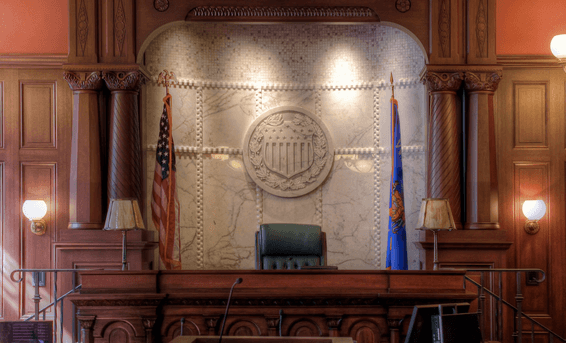
Members of the Wisconsin bar are supposed to be honest. This may not comport with the perception that the public has of lawyers. Indeed, it is the exact opposite of the sentiment expressed in the opening quotation by Jean Giraudoux. However, the expectation that attorneys, including judges, should be honest and avoid the appearance of impropriety remains. This requirement is codified in the oath that members of the Wisconsin Bar take and in the Code of Professional Conduct they are required by the Wisconsin Supreme Court to uphold
The Attorneys’ Oath states in relevant part:
“I will employ, for the purpose of maintaining the causes confided to me, such means only as are consistent with truth and honor, and will never seek to mislead the judge or jury by any artifice or false statement of fact or law.”
There is simply no way that the application of the Counting Rule complies with the attorney’s oath when it requires a judge or attorney to instruct a witness to lie to a jury. The practice is anathema to the ethical obligations of attorneys and it requires bar members to violate a solemn oath that they each swore or affirmed that they would preserve inviolate.
As was the case with witnesses being compelled to testify falsely, the routine violation of oaths by attorneys and judges is an infection that may well invite those same individuals to violate their oaths in other ways, in other situations not expressly permitted by the Wisconsin Supreme Court.
Wisconsin’s Rules of Professional Conduct require honesty as well. Supreme Court Rule 20:3.3(a) states in relevant part:
(a) A lawyer shall not knowingly: (3) offer evidence that the lawyer knows to be false. If a lawyer, the lawyer's client, or a witness called by the lawyer, has offered material evidence and the lawyer comes to know of its falsity, the lawyer shall take reasonable remedial measures, including, if necessary, disclosure to the tribunal. A lawyer may refuse to offer evidence, other than the testimony of a defendant in a criminal matter that the lawyer reasonably believes is false.
Note that, by application of the Counting Rule, the attorney has knowingly offered evidence he or she knows is false. However, because he or she has done so with the court’s prior knowledge and instruction, the remedial measure is not necessary. That does not mean that the rule has not technically been violated. The remedial measure portion applies when the lawyer “comes to know of its falsity” after-the-fact. It doesn’t excuse the knowing and intentional submission of false evidence to a jury.
Another provision of Wisconsin’s Rules of Professional Conduct for attorneys demonstrates the standard of honesty that attorneys are held to:
(a) A lawyer shall not knowingly: (1) make a false statement of fact or law to a tribunal or fail to correct a false statement of material fact or law previously made to the tribunal by the lawyer.
While this provision demonstrates the duty an attorney has to the court, the rule itself may or may not be violated by application of the Counting Rule because of the statute’s definition of tribunal.
“Tribunal” denotes a court, an arbitrator in a binding arbitration proceeding or a legislative body, administrative agency or other body acting in an adjudicative capacity. A legislative body, administrative agency or other body acts in an adjudicative capacity when a neutral official, after the presentation of evidence or legal argument by a party or parties, will render a binding legal judgment directly affecting a party's interests in a particular matter.
An argument can be made that a jury is not such an “other body,” does not act in an adjudicative capacity, or render a binding legal judgment that directly effects a party’s interests. Often times, it is within the judge’s discretion to set aside the finding of a jury, and it is ultimately the judge’s duty to issue an order following (and usually consistent with) the verdict. At the same time, a finding of not guilty in a criminal matter cannot be set aside.
Whether a fraud can be perpetrated on a “tribunal” under the meaning of the statute when the fraud is undertaken at the direction of the court is a question that only arises under Wisconsin’s bizarre Counting Rule. Both the Counting Rule and the Wisconsin Rules of Professional Conduct are created and administered under the authority of the Wisconsin Supreme Court. The Wisconsin Supreme Court is unlikely to hold a lawyer liable for violating professional ethics where the only actions at issue were those compelled by a presiding judge under the binding dictates of the Supreme Court itself.
Nonetheless, the citation to the Rules of Professional Conduct is still relevant in demonstrating the conflict between the Counting Rule and the expectations ethics rules impose for officers of the Court. Lawyers are expected to be honest and forthright to courts, judges, juries, witnesses and parties. The Counting Rule may compel them to assist in perpetrating a fraud upon jurors, through the use of witnesses, at the direction of judges, in front of third-parties and the public.
IV. Costs Outweigh the Benefits
The Counting Rule exists to help jurors determine the credibility of witnesses, but it does so by undermining the credibility of the judicial system itself.
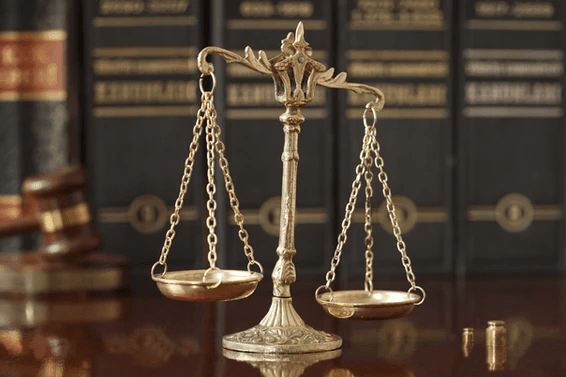
a) Costs
The Counting Rule infects the justice system with dishonesty and the ultimate cost of that infection cannot be clearly measured.
When witnesses are told to lie, it sends a message that lying is acceptable.
When lay persons learn that the system of alleged truth is predicated on falsehood, those same individuals may question the validity of the courts and even the rule of law itself.
When jurors become aware that witnesses and attorneys may be lying under order of the court, it makes it that much more difficult for them to do their already difficult duty of weighing the quality of competing evidence and rendering a verdict that reflects society’s notions of justice.
When members of the bar are encouraged, and indeed, required to lie, in contravention of the oaths and ethics that they have adopted for themselves, it undermines their own commitment to those principles.
And ultimately, when the system adopts any rule that undermines the credibility of the participants in the legal system, that adoption reinforces the long-held, deeply-rooted stereotypes and suspicions individuals have about the system of laws that sustains society.
These are the costs of Wisconsin’s Counting Rule, and, unfortunately, they come at potentially nominal benefit.
b) Benefits
Perhaps there is a need to reassess the Counting Rule. Its “credibility calculus” is elusive, imprecise, and invites the jury to disregard a witness’s testimony because he or she is a “bad” person. The rule’s overarching objective appears to be to inform the jury that this person is a convicted criminal for whatever difference that may make.
What benefit to a jury is knowing how many times a person has been convicted of criminal activity, absent any other context? Can it be rationally asserted that there is no difference between a charge of retail theft and capital murder, such that, when both are found relevant, they should be given the same weight by jurors? "One conviction." Common sense and rationality say not, but that is precisely what Wisconsin’s Supreme Court has endorsed.
The convictions themselves do not necessarily have to bear on a person's character for truthfulness…The assumption is that the longer the criminal record, the less credible the individual. This reasoning applies regardless of the nature of the prior conviction. Burglary, murder or criminal drunk driving convictions are deemed as probative of credibility under this rule as a false swearing conviction. In short, it is not necessary to directly link the nature of the offense with the character for truthfulness; the link is provided by the fact of conviction alone.
This assumption does not comport with the common sense analysis that most individuals would likely apply to the question. It doesn’t comport with society’s treatment of crime or the punishment of it. It is precisely because different crimes have different levels of moral blameworthiness, moral depravity, and harm to society that society punishes different crimes differently based upon the specifics of the acts individuals are convicted of committing. The assertion that these crimes are all suddenly equal in terms of credibility is inconsistent with the many broad practices surrounding crime and punishment.
The Counting Rule is actually inconsistent with the statutory presumptions of character evidence as are generally applied to accused criminals themselves. Wisconsin statutes clearly prohibit the use of prior bad acts just to show that an accused criminal is a bad person and, thus, is more likely to do bad things.
Wis. Stat 904.01. Character evidence generally. Evidence of a person's character or a trait of the person's character is not admissible for the purpose of proving that the person acted in conformity therewith on a particular occasion[.]
While the character provisions of Wisconsin statutes have exceptions for other permissible purposes, using an accused’s prior criminal record just for inferences of bad character is strictly prohibited. Just because someone robbed a bank 5 years ago doesn’t mean he robbed a particular bank 4.5 years later (assuming a delay for trial), and so it isn’t evidence of the later robbery unless the manner suggests a connection.
However, the same character rules which apply to the accused do not apply to witnesses, and the court applies a per se assumption in the exact opposite direction: If a person has a long criminal record, he or she cannot be trusted as much as a person with a shorter record, regardless of circumstances specific to the conduct.
When the Counting Rule functions as intended, without exceptions like the Pitch exception, all that the jury learns through this prolonged and contrived process is that the witness has a certain number of criminal convictions of unknown time, age, or conduct. One can imagine a jury puzzling about what to even make of that information.
The rule does not accurately advise a jury about the witness’s actual character for truthfulness, but perhaps gives some incite into his or her propensity for criminal actions. While those two items may often be linked, they are not the same. A preeminent factor in the decision to commit a crime is motive. Motives can include poverty, perceived necessity, emotional stimulus, psychological stimuli, drug or alcohol addiction, mistakes of law, and other factors that have no relation to a person’s likelihood of giving truthful testimony in a court. Just because a person is addicted to drugs, and therefore prone to convictions for drug possession, does not mean that person is more or less likely to give false testimony as a witness to a car accident.
There may be a seeming benefit in addressing witness’s prior criminal convictions in a quick and seemingly efficient manner. That may be the intention of the Counting Rule, to not bog down proceedings with the admission of evidence from prior unrelated cases. That may even be a reasonable goal, although the efficiency is questionable in light of the pretrial practice as it currently exists.
However, if efficiency is the goal, it could be achieved by means that did not require the dishonesty the current rule breads. Marquette University Law Professor Daniel Blinka suggests that, “It may be advantageous to consider a pure ‘fact’ rule that informs the jury that a witness is a ‘convicted criminal’ but does not offer any information about the nature or number of convictions (the jury should also be instructed not to speculate about such issues).” This approach would serve the same objective of swiftly moving through the issue of prior convictions without undermining the credibility of those involved in the judicial system.
V. Conclusion
Whether the Wisconsin Supreme Court chooses to move in a direction towards greater inclusion of witnesses' prior criminal records (such as the approaches taken by the Federal courts and the Commonwealth of Massachusetts) or move towards lesser inclusion (such as the approach suggested by Professor Blinka), the current rule’s tendency to promote dishonesty in the system serves as a compelling basis for altering Wisconsin’s approach to impeachment by prior conviction. The rule provides little to no appreciable benefit to jurors, and does not appear to be very efficient. Therefore any potential benefits seem substantially outweighed.
Though not controlling, it bares noting again that no other jurisdiction has chosen to follow Wisconsin’s approach. If Wisconsin wishes to promote a view of the justice system as one which serves the interests of truth and honesty, then it can advance this cause substantially by changing course in this area of law.
